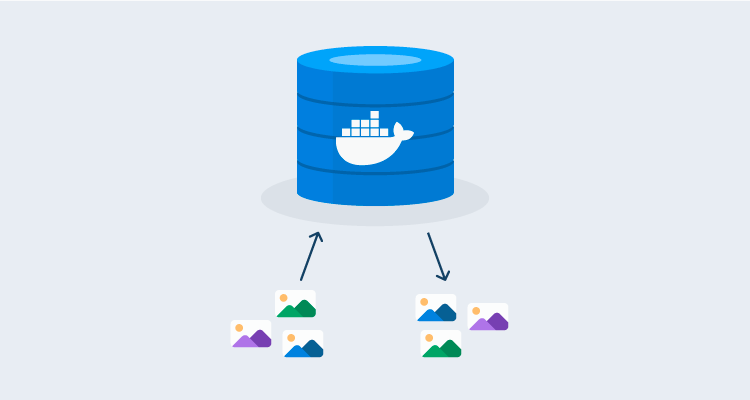A Docker registry is widely used by software and application developers these days. This is because containerization has become a popular practice worldwide. It has made sharing, execution, distribution, and development of software, in general, easy and convenient. Various Docker registries are available for use, and each has multiple features to offer, which greatly benefit its users. For instance, Docker Hub, Google container Registry, Quay, Docker Registry by JFrog, etc., are some widely used Docker registries. Read on to learn more about how these registries prove to be advantageous.
Table of Contents
What is Containerization?
There are various functionalities required to run an application or software. Containerization refers to the idea of keeping together all these functionalities in a package or container image. The package is a portable medium that can run on any platform and is used to carry all the dependencies involved and needed to execute software such as libraries, back-end code, and frameworks. In addition, containerization enables virtualization at the operating system level, which means that it eliminates the requirement to allocate RAM memory. This is where the concept of Docker registries comes in.
What are Docker Registries?
Docker registries are platforms that make it possible to have all the containers under one umbrella on a centralized platform, allowing developers to manage containers in an organized way and efficiently oversee their development cycle or pipeline. It keeps in check where and when the Docker images are being stored.
What are the Benefits of a Docker Registry?
Docker registries consist of numerous public and private repositories where a user can push and pull Docker images or containers. Public repositories can be accessed by anybody on Docker, while private repositories can have restricted access according to an organization’s needs and access control policies. These repositories allow different versions of the Docker images to be stored, and the users can name and tag the images accordingly for easy identification and tracking.
Another major benefit of the Docker registry is that it allows an organization to work in teams and organizations. Collaboration is made easy as a team can easily work on a project even if individuals are not located in the same vicinity. A developer in one part of the world can develop and work on an application or software with someone who may be in another corner of the world. This is because the container builds are independent of the work environment, so it does not matter if the users are working in different OS environments.
Moreover, automated builds are possible for containers in a Docker registry. This way, software delivery is greatly improved. It allows for continuous integration and development, which is of immense importance to developers for testing and production. In addition, a caching feature can also be used on the builds, which pulls images from the repository automatically. It helps save time and enhances the overall efficiency of the process.
Security is an essential point to take into consideration in software sharing and development. A Docker registry has built-in security features involving multi-factor authentication and image scanning. This enables images to be scanned to ensure the containers’ security level and validity. This is important to keep away any threats or vulnerabilities that may be linked to the code and the application’s operating system before it is distributed any further.
Furthermore, Docker registries offer a huge library of images. Docker has an official registry known as Docker Hub, which specifically hosts more than 100,000 images. It also allows users to integrate with other platforms like GitHub and BitBucket. Features like webhooks generate trigger actions, making the registry capable of integrating with other platforms. Once pushes have been made from other platforms, the containers can then be put through automated testing. The developers can run the tests, and the push is instantly stopped if a test fails. This implies that quicker feedback can be obtained regarding the code and its functionalities, making the procedure more systematic.
Ending Note
Thus, Docker registries give software developers a gateway to better development ways by offering several features that cater to different aspects of software building requirements and make containerization smooth for Docker users and fulfill their container needs. Developers also have an option to use free plans provided by some registries, which allows them to see which registry would be feasible for their use per their respective needs.
